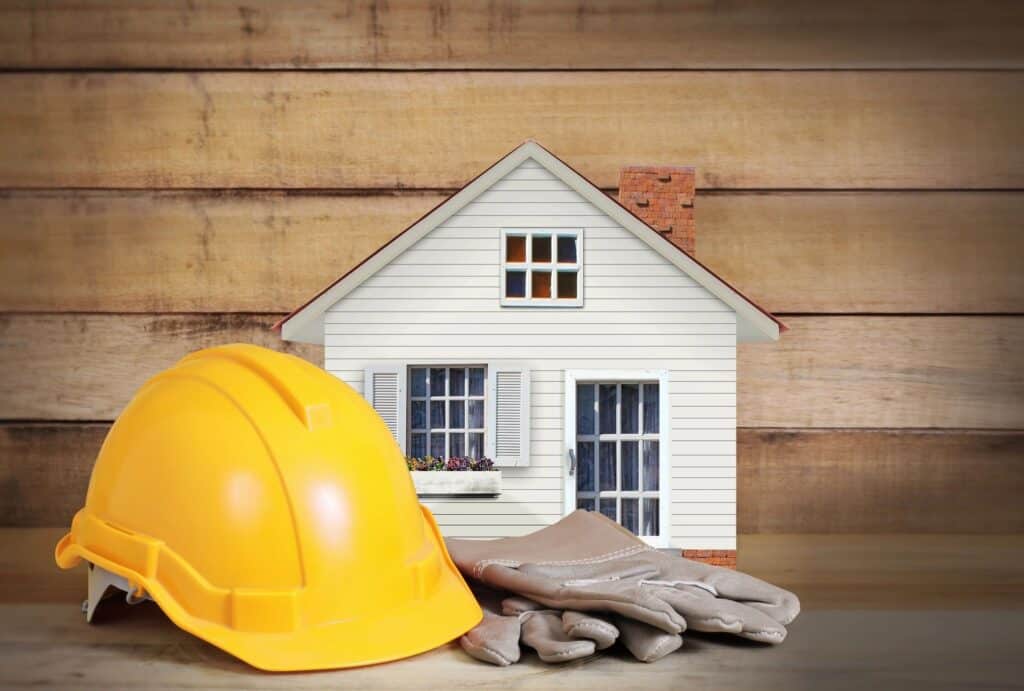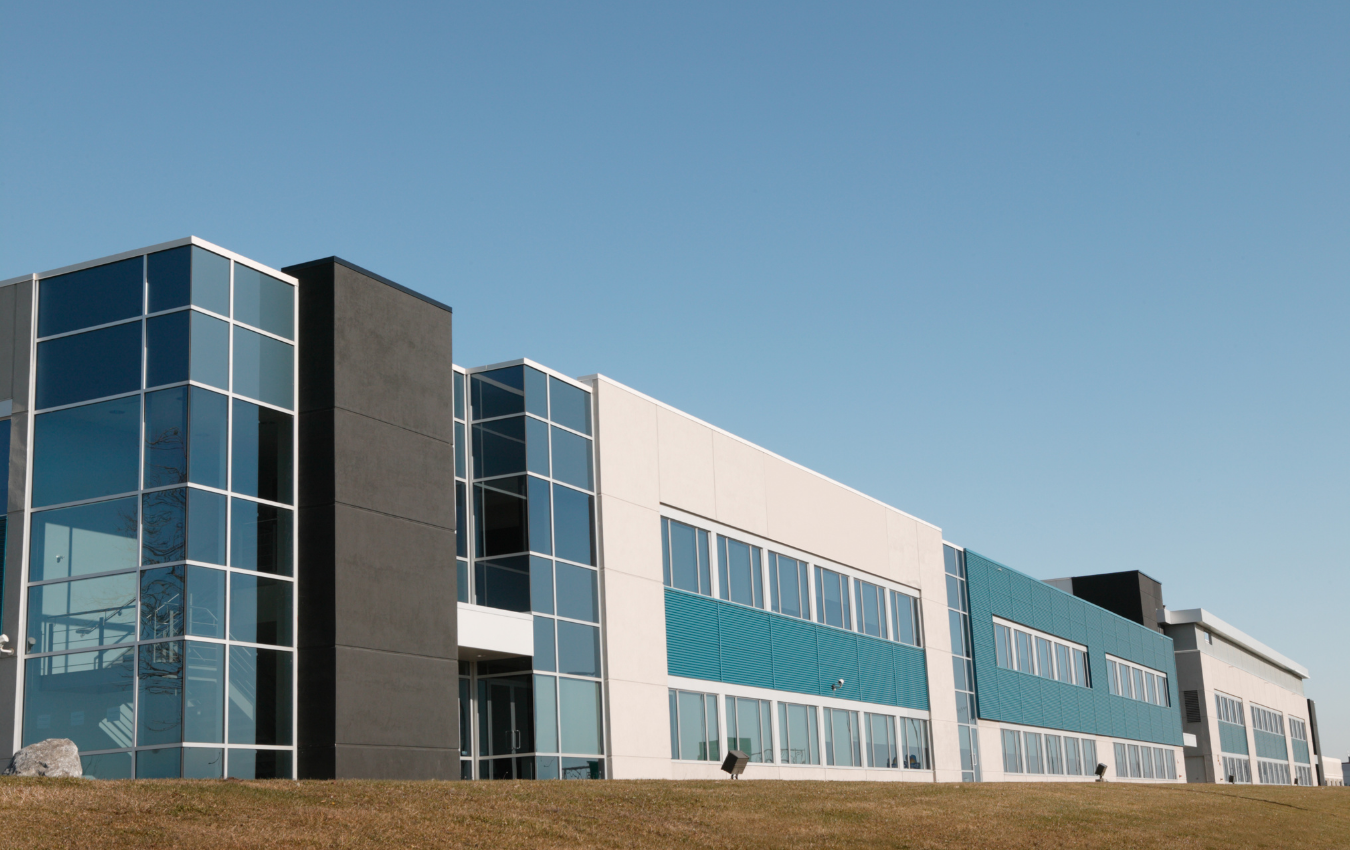What is the Difference Between Residential and Commercial Construction?
Home » What is the Difference Between Residential and Commercial Construction?

The Construction Industry
Residential and commercial construction are subcategories of the overall construction industry, which is huge. The construction industry has an estimated worth of about $1,362 billion. While the residential sector consists of about 42.5% of the construction industry, versus commercial construction at 7.1%. By understanding the scope of the construction industry will help explain differences in residential and commercial construction.
The Residential Construction Sector
When you look at the difference between residential and commercial there is a huge difference in scale. There is way more homes in the United States, versus commercial businesses. As a result, the residential market is much bigger. The residential construction sector consists of residential contractors and subcontractors. The term residential refers to property that is design for a person or people to live in. Residential contractors are contractors that specialize in serving homeowners or residents. Residential construction companies are business to customer. They primarily do maintenance, repairs, remodels, expansions, and renovations to homes.
There are more general contractors or residential contractors, subcontractors, materials, equipment, and supplies designed for the residential market. In other words, this is the law of supply and demand. Homeowners have a much greater selection of contractors to choose from as well as building materials to be used. However, contractors are dealing with much more customers than they would in the commercial sector.
The Commercial Construction Sector
Commercial sector of the construction industry is rather smaller, due to a smaller volume of potential projects. As a result, there are a lot fewer commercial contractors than there are residential contractors. Commercial contractors focus on serving commercial businesses such as: retail, hotel, property management, storage facilities, offices, and more. These commercial businesses often sell goods and services to their customers.

Common commercial construction services consist of remodels, renovations, tenant improvements, design-build, seismic retrofitting, restoration and ADA compliance upgrades. Commercial construction companies are business to business.
In the commercial sector, there are less projects in volume, but they are much larger in scale and complex versus the residential sector. Businesses have more capital, than the typical homeowner to make improvements for the property. In addition, they also require more effort, attention, and specialization. Commercial construction projects are often longer in duration and often more expensive.
Residential Construction Vs Commercial Construction
For the most part, commercial and residential construction differ in building materials, equipment required, and how to obtain funding. In addition to the type of contractors and subcontractors you would hire for your project needs. It is not recommended to hire a commercial contractor to do residential construction and a residential contractor to do commercial construction. This is because the contractors will have irrelevant experience in delivering the project to their clients. It will cost the owners of the project more money and time. It is recommended to hire a with relevant experience to your project. Below is a comparison how residential construction and commercial construction differ.
Residential:
- Lower Cost
- Lower Quality of materials, equipment, and labor
- For Homeowners
- Faster Project Delivery
- Smaller projects
- Less Complex projects
- More contractors and subcontractors (residential contractors)
- Funded by the homeowner
- Business to Customer Environment
Who Commercial Contractors Serve:
- Property management firms
- Retail stores, shopping centers, and malls
- Industrial – manufacturing and warehouses
- Self-storage facilities
- Hospitality – restaurants, hotels, and motels
- Offices – Corporate, medical, and other
- Laboratories
- Medical Centers and other facilities
- Gyms and other recreational facilities
- Airports
Residential Construction Building Materials:
For residential homes differ in many ways in being build than commercial businesses. For instance, homes are primarily built by timber, which is framed by residential contractors. Timber is used typically because steel framing is not ideal. Wood framing is a more affordable design and approach for a home. Home designs are also much simpler and require less time. Typically, homes are much smaller than a commercial business. In general, a home is at least two floors in height. They generally require less materials for the job than commercial due to the small size and simplicity of the project. Overall, the building materials for residential construction projects are cheaper.
Commercial Construction Building Materials:
For commercial businesses, a commercial contractor frames the building in steel. Often, this is more ideal for commercial businesses because it sturdier and more durable, however it may be more expensive. In addition, steel framing work is much more complex the wood framing. It will require more effort and time from an architect or designer of the project. Commercial projects in general, require more materials for the job than residential due to the large size and complexity of the project. Commercial buildings can be huge in square footage and height. Which emphasizes the importance of steel and stronger building products than residential project. Ultimately, building materials for commercial projects are more expensive.
Codes and Permits:
Some construction projects require permits, and some do not. Every construction project needs to follow building codes, fire codes, and local municipal codes. With, commercial and residential codes and permits vary. Certain codes are specifically designed for residential and others for commercial. This is because they are two different types of structures built for different purposes. For example, you would not exactly build an elevator or install a parking lot for your home. Therefore, some codes are limited to certain sectors.
Permits are required depending on the project and industry sector. For instance, if you were a commercial business and you are doing construction for multiple properties, more than likely you will have to get similar permits over an over. Likewise, if you are house flipper doing multiple home remodels. For example, in commercial buildings there needs to be fire sprinklers installed. Which leads to a permit and inspection of those fire sprinklers.
Ultimately, codes and permits depend on the project. Depending on the industry you are more than likely to deal with certain codes and permits.
Residential Construction Equipment
Going back to the small size and simplicity of residential projects, contractors servicing homeowners needs the simplest equipment to carry out their duties. In addition, they need minimal equipment compared to commercial contractors. Residential contractors have less of a safety concern on their jobs since, they are not operating out of a live parking lot like a mall or hospital.
Commercial Construction Equipment
Commercial contractors need more equipment and need to take more safety measures during construction projects. Larger projects amount to larger and more equipment. In addition, the variety of equipment due to the complexity of these projects. Commercial contractors need to be proactive with safety vest, when operating in parking lots. Commercial environments involve the construction team to be more aware of their whereabouts.
Residential Construction Cost
Residential construction projects are far lower than commercial projects. Thinking of supply and demand, homeowners do not have a huge demand for upgrades, expansion, alterations, or improvements for their property like businesses. Residential construction is cheaper in building materials, equipment, labor, and other construction related cost. Usually involves less laborers, subcontractors, materials, and equipment.
Construction projects in the residential sector are funded by homeowners. Not every homeowner has the luxury of paying cash for construction services on their projects. Here is a list of ways that homeowners pay for contractors:
- Insurance – fire, water, smoke, vehicle, or vandalism damage. The construction project is funded by an insurance agency.
- Bank loan – homeowners go to a bank and seek funds.
- Cash – the homeowners pay the project straight out of their pocket.
- Government or non-profit assistance programs
Commercial Construction Cost
Commercial construction projects are more costly than residential projects. The size and scale requires more skilled labor, more advanced equipment, quality materials, and more involvement in building compliance. These projects are typically funded by a business owner or property manager from a property management firm. Here is a list ways a commercial construction project is funded:
- Cash
- Bank Loan
- Investor funded
- Insurance – fire, water, smoke, vehicle, or vandalism damage. The construction project is funded by an insurance agency.
- Government program
Summary of the Differences of Residential and Commercial Construction
Residential and commercial construction are in the same industry but differ as far the type of projects, service, materials, labor, equipment, and regulations. Here is a quick rundown on how they differ:

Residential:
- Lower Cost
- Lower Quality of materials, equipment, and labor
- For Homeowners
- Faster Project Delivery
- Smaller projects
- Less Complex projects
- More contractors and subcontractors (residential contractors)
- Funded by the homeowner
- Business to Customer Environment

Commercial:
- Higher in Cost
- Higher quality of materials, equipment, and labor
- For commercial businesses
- Longer project delivery
- Larger Projects
- More Complex Projects
- Less Contractors and subcontractors (commercial contractors)
- Funded by the business
- Business to Business Environment.
In conclusion, it is recommended for you to find a commercial contractor if you seek commercial construction services. If you are looking for residential construction, then find a residential contractor to help you.
Partner With JMF Commercial Construction
JMF Commercial Construction is an experienced licensed contractor serving commercial and light industrial businesses, and HOA Property Management. We provide convenient and quality services to the Los Angeles & Orange County businesses.
To start your next commercial construction project today! Contact JMF Commercial Construction for an Estimate.
Email us at info@jmfcommercialconstruction.com or call us at (562)572-8354.
Most Popular:
Have A Question?
Relevant Blog Posts

Top 10 Questions To Ask A Commercial Contractor
Many new business owners have yet to experience hiring a commercial contractor. As a result, many business owners do not know what to ask or

Hiring The Right Commercial Contractor
Many new business owners have yet to experience hiring a commercial contractor. As a result, many business owners do not know what to ask or

Why Hiring A Commercial Contractor Is Important?
Whether you are looking for new construction, renovations, remodeling, or any other construction services for your commercial building, you will need to hire a commercial

Hiring The Right Commercial Contractor
Many new business owners have yet to experience hiring a commercial contractor. As a result, many business owners do not know what to ask or

Why You Should Hire A Contractor Directly & Not Through A Third Party
Many people have trouble looking for contractors to help them with their construction needs. Especially if they are new to the contractor hiring process. Often,

Key Qualities To Look For In A Commercial Contractor
Many business owners and managers struggle to connect and build a relationship with a commercial contractor. With a failed partnership, owners and management are left

Why Hiring A Commercial Contractor Is Important?
Whether you are looking for new construction, renovations, remodeling, or any other construction services for your commercial building, you will need to hire a commercial



